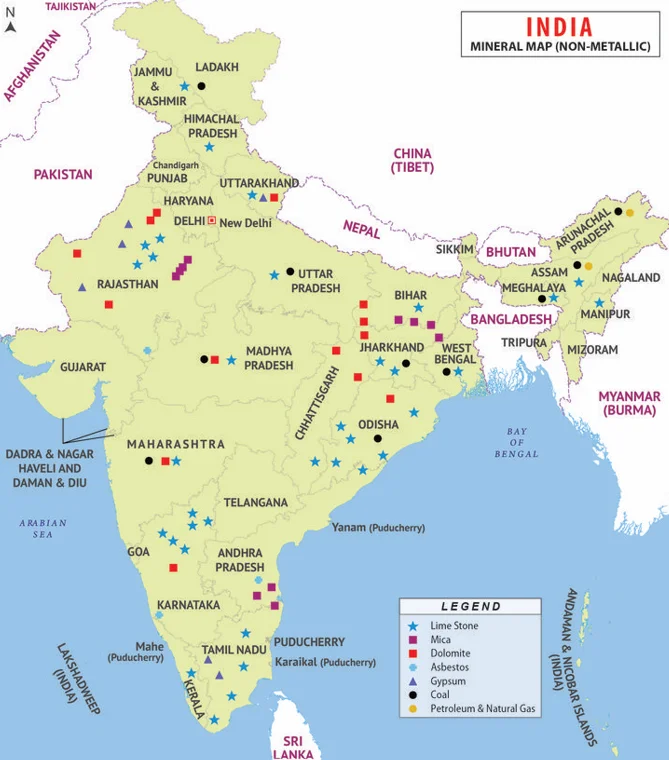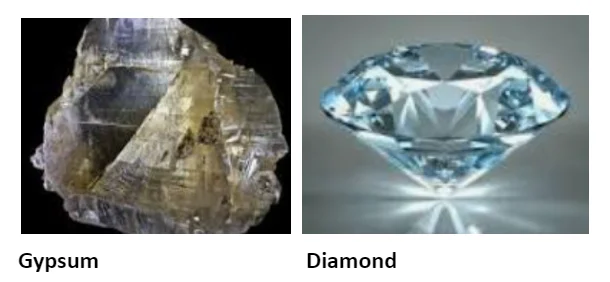![]() May 2, 2024
May 2, 2024
![]() 5724
5724
![]() 0
0
Non-metallic minerals play important roles in various industries, with mica being a standout in India. Alongside mica, minerals like limestone, gypsum, and diamond contribute significantly to the country’s economy. Heavy mineral sands and titanium minerals found along India’s coastline add to its mineral wealth.


| Must Read | |
| Current Affairs | Editorial Analysis |
| Upsc Notes | Upsc Blogs |
| NCERT Notes | Free Main Answer Writing |
India’s non-metallic mineral resources, including mica, limestone, gypsum, and diamond, play crucial roles in sustaining diverse industries. With abundant reserves and widespread production centers, these minerals contribute significantly to the country’s economic development.
<div class="new-fform">
</div>
Latest Comments